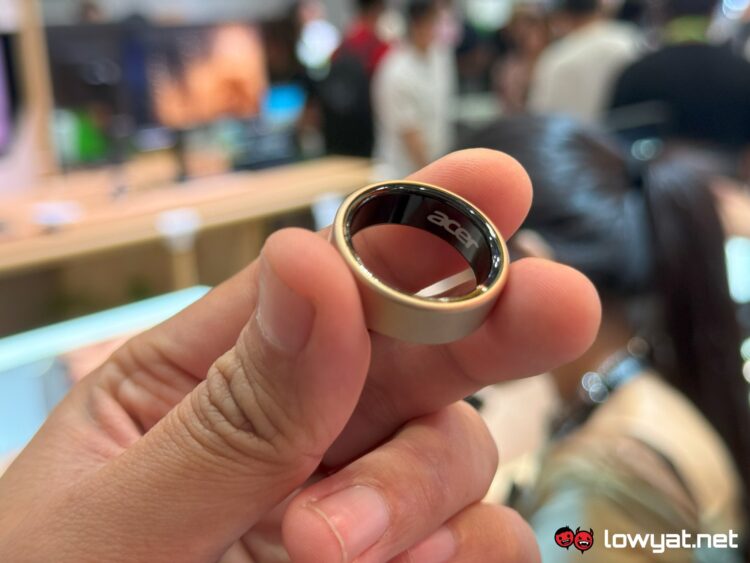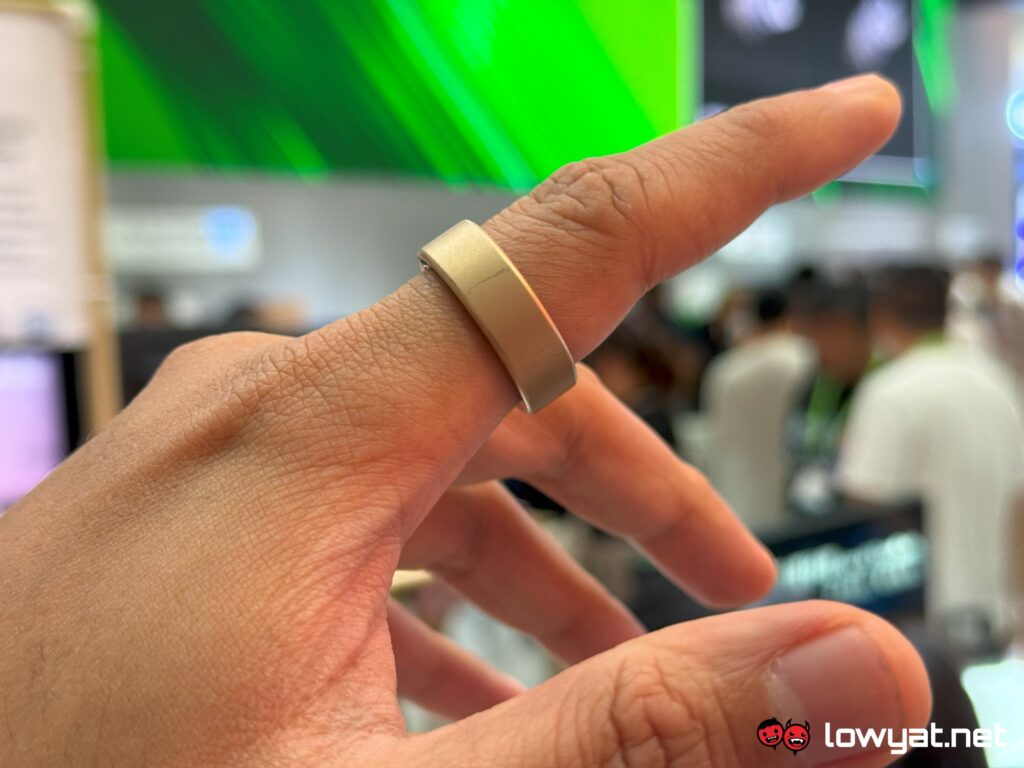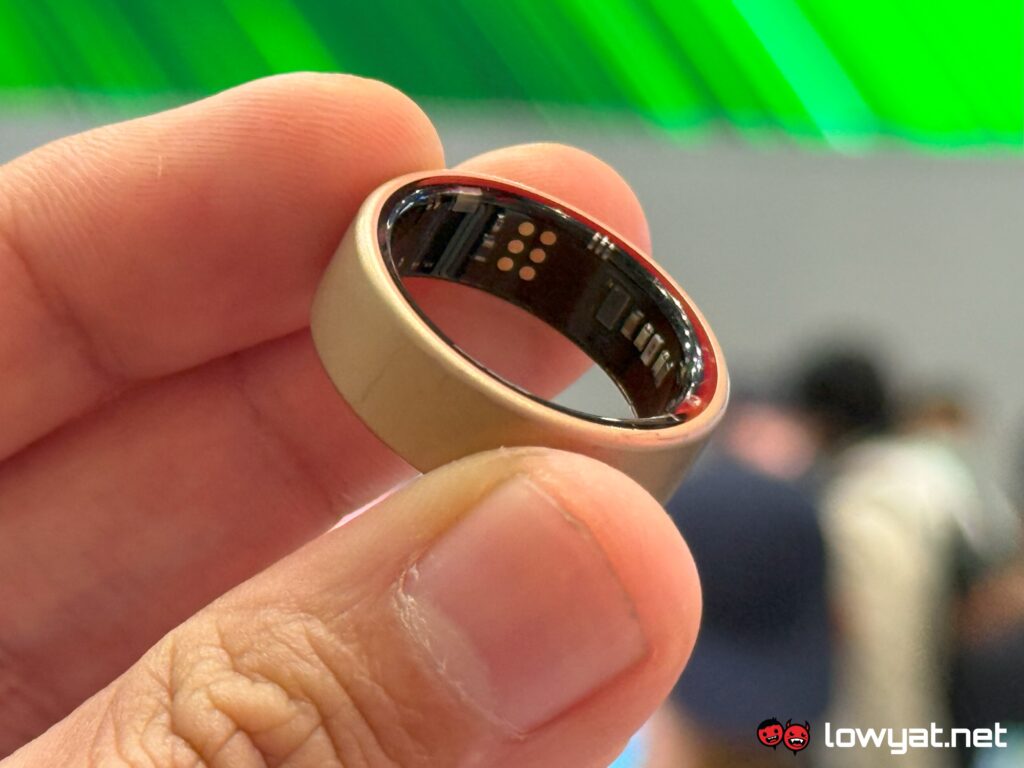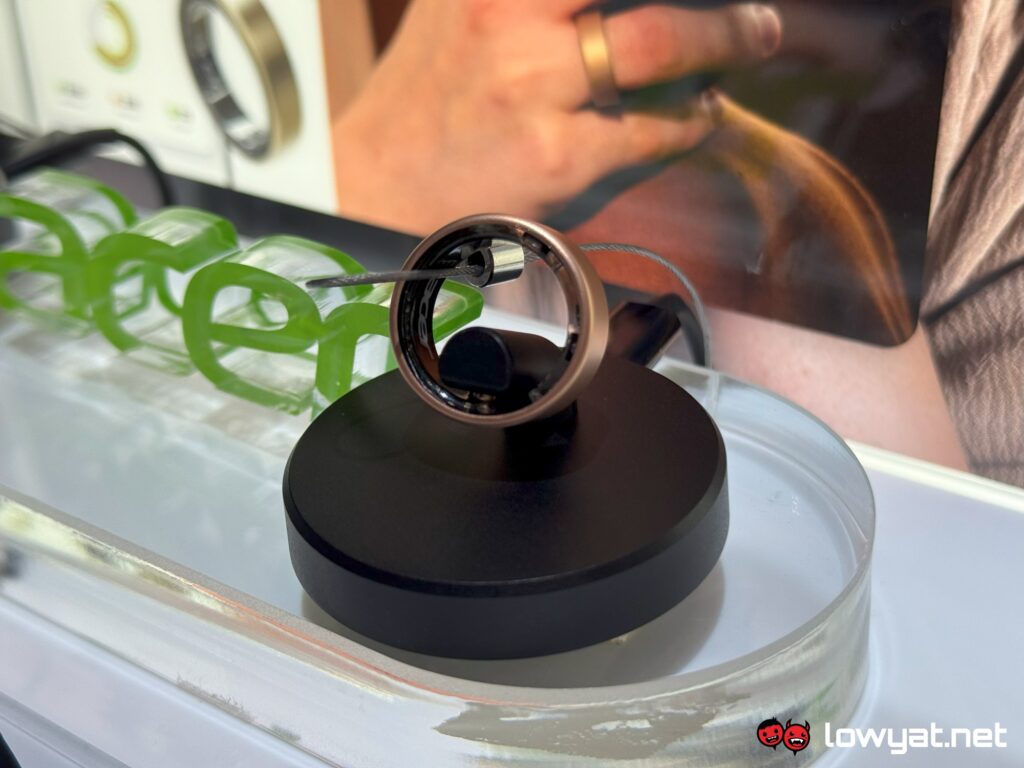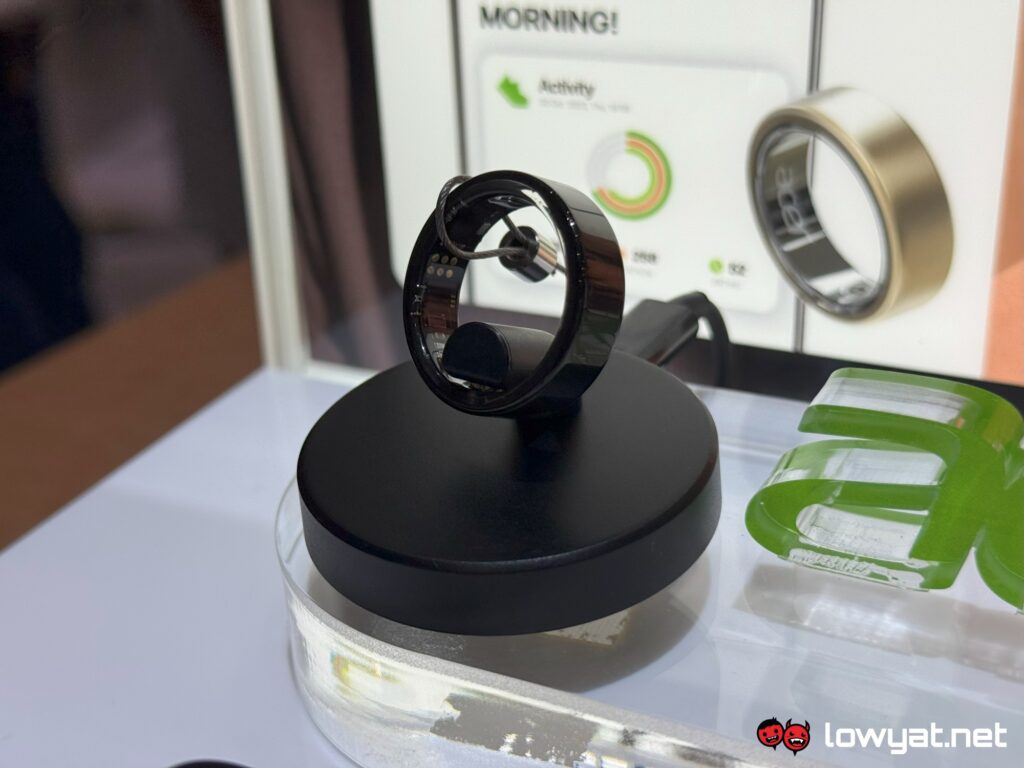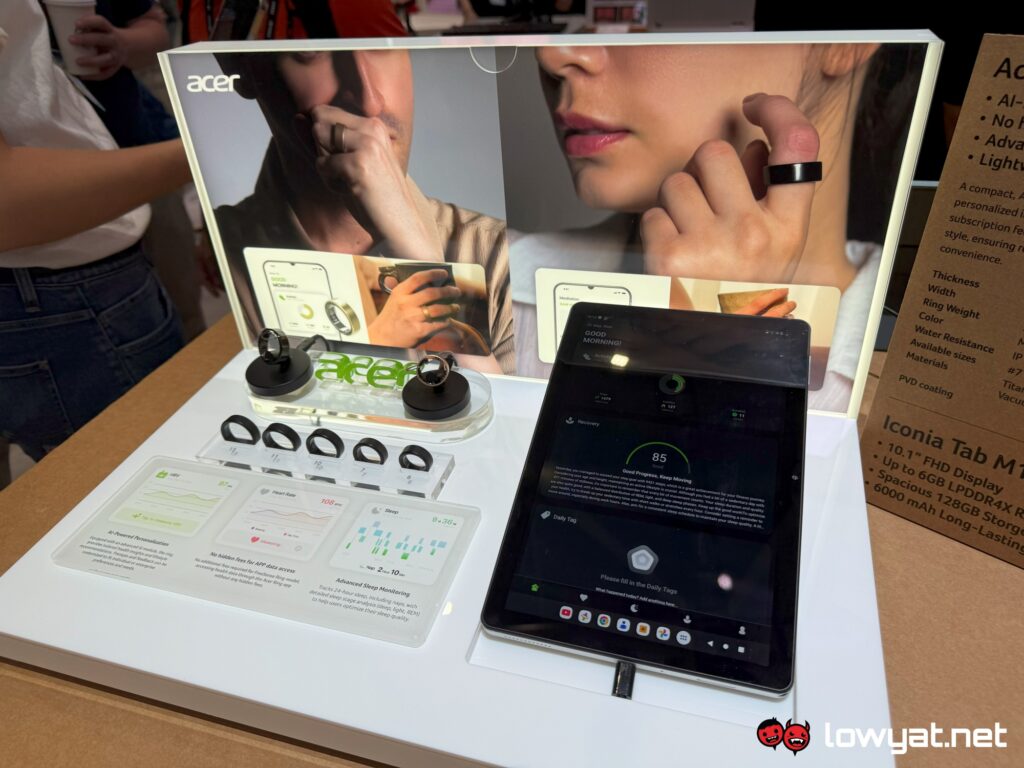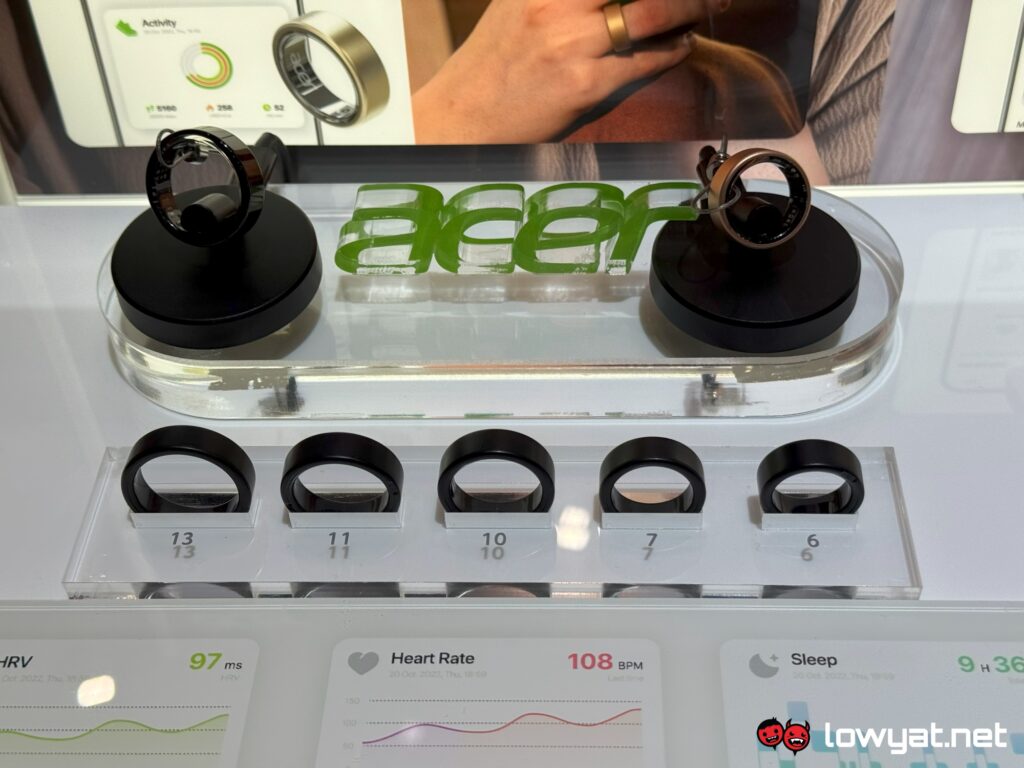One of the more unexpected reveals from Taiwanese tech company Acer this year is its first-ever wearable device, the FreeSense Ring. While attending Computex 2025 in Taipei, we had the chance to try it out at the company’s booth, where the smart ring was available for an early hands-on preview.
Like many of its competitors, the FreeSense Ring ticks the usual boxes expected from a modern smart ring. It features a lightweight design with a titanium exterior, a durable resin interior, and includes health tracking capabilities along with gesture control support.
In terms of appearance, the ring is offered in two finishes: glossy black and matte rose gold. As for sizing, there are five options available: sizes 6, 7, 10, 11, and 13. Granted, all of these options seem quite limited, especially when compared to the competition. To its credit, though, the wearable does look clean and discreet.
The device is rated 5 ATM and IP68 for water and dust resistance, meaning it’s suitable for swimming and snorkelling, but not recommended for diving or high-pressure water activities. Battery life is rated at up to four days, with a full charge taking around an hour via the included proprietary charger.
The FreeSense Ring pairs with a companion mobile app, which allows users to track key health metrics such as heart rate variability (HRV), sleep, blood oxygen levels, stress levels, and menstrual cycles. On the fitness side, the app supports over 25 workout types, including running, swimming, and various sports. Notably, the ring works with both Android and iOS devices, and Acer has confirmed that all features are free to use with no subscription required.
Gesture-based controls are also part of the experience and can be enabled through the mobile app. That said, the feature is currently limited – letting users perform basic actions like snapping photos or answering calls with a wave of the hand.
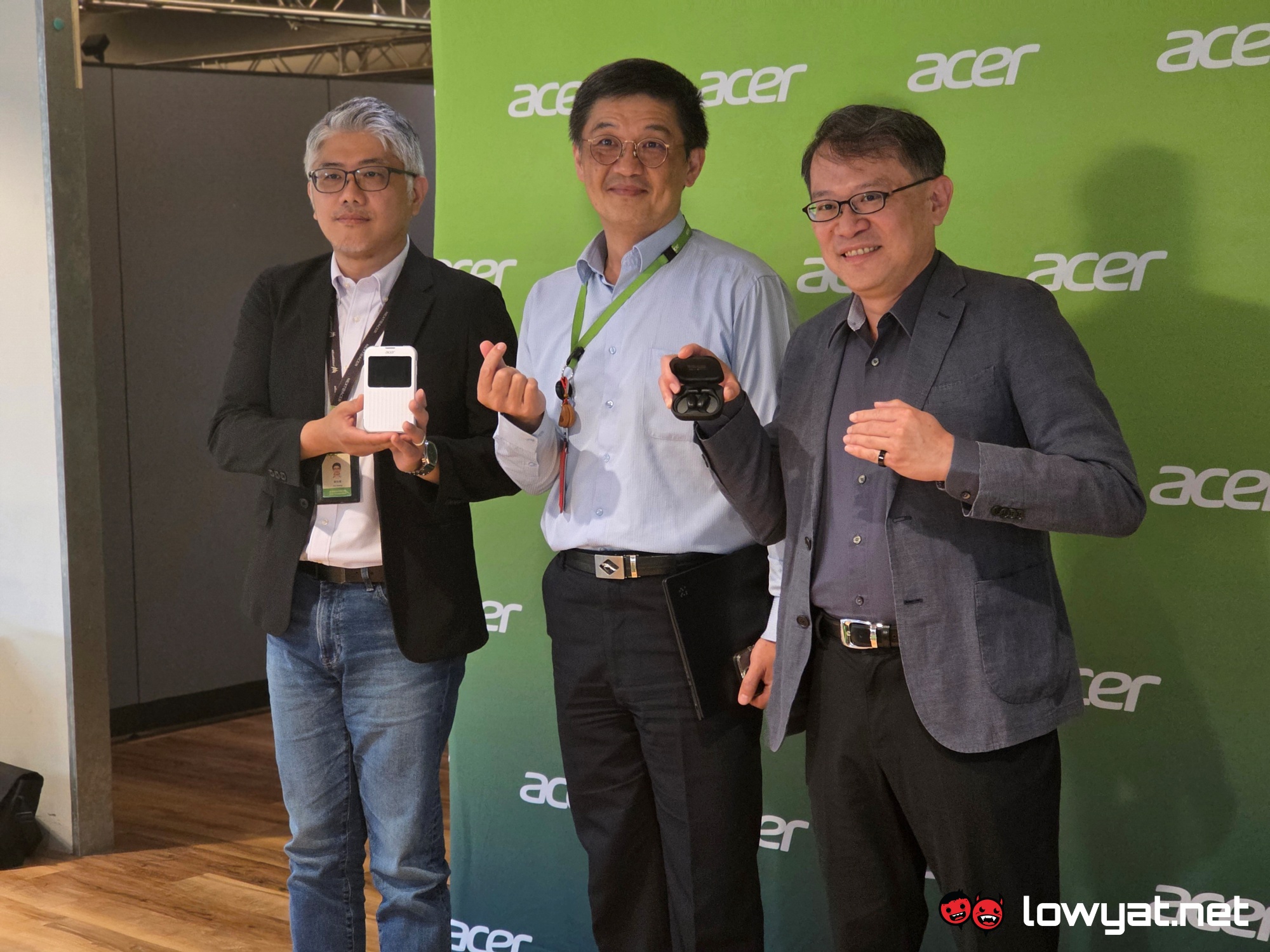
Why a smart ring, then? During a Q&A session, Acer Gadget president Allen Jong explained that the company wanted to develop a health-focused wearable for users who prefer alternatives to smartwatches. This intention is reflected in the FreeSense Ring’s broad compatibility and its subscription-free model.
Jong also noted that the market is saturated with smartwatches, while smart rings remain relatively scarce. When asked about Acer’s future plans, he revealed that the company is exploring the possibility of introducing other wearables, including a smartwatch and other audio products, though nothing is expected in the near term.
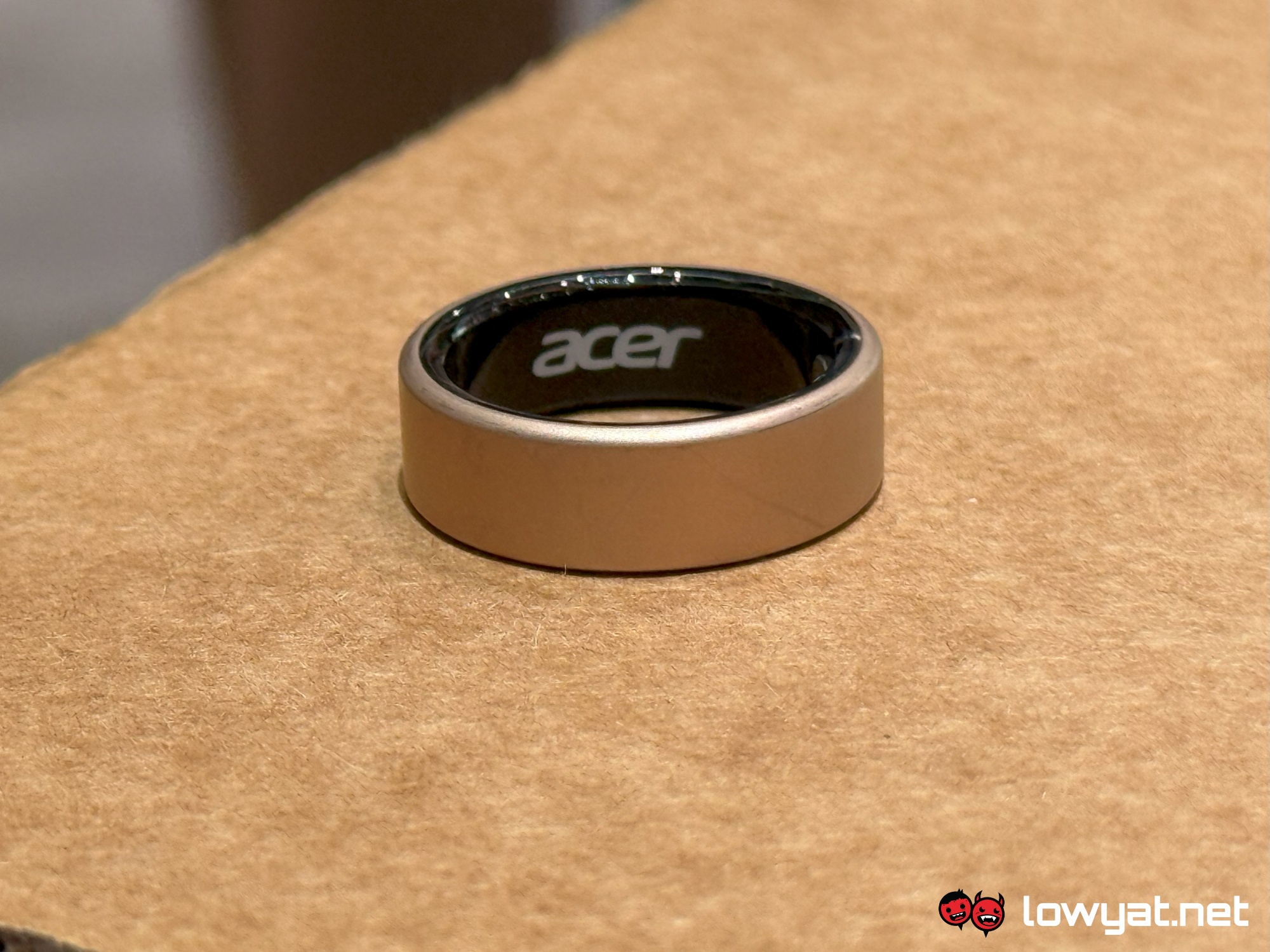
As for pricing and availability, an Acer representative at Computex 2025 shared that the FreeSense Ring is expected to retail between US$199 (~RM836) and US$250 (~RM1,050), making it noticeably more affordable than competitors like the Samsung Galaxy Ring. It’s slated for an August launch in select markets, though it remains unclear whether Malaysia will be among them. That said, if the wearable does arrive locally, it could offer a compelling alternative for health tracking – especially given its feature set and relatively accessible price point.

